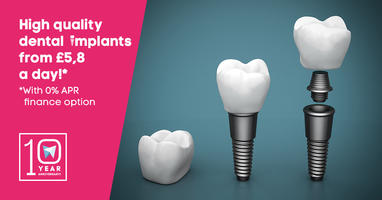The surface of a dental implant is very important because it is one of the most significant factors in determining the success rates of implants. Nowadays, dental implants have an extremely high rate of success, and this is due to the fact that a lot of attention has been turned towards making the implants easier to integrate into the bone. New innovations are frequently in this vein as well, with better and better surfaces being discovered and tested all the time.
Porous Surfaces vs. Smooth Surfaces
It has become quite apparent in the thirty-some odd years of implantology’s existence that a porous surface is easier for bone to integrate, as bone is also porous, and the bone can thus grow into the surface of the dental implant, therefore completely encasing it, leaving no space for bacteria to enter the implant.
On the other hand, porous material, especially ones with tiny, almost microscopic pores, as is the case with dental implants, are much harder to clean. This means that if the osseointegration process is taking more time, or is incomplete, then a lot of detritus can get stuck in the implant’s surface, and the risk of infection increases. This is why some companies, like this one in Aachen, Germany, are working towards getting their implants as smooth as possible. Healing time may increase, but stability should not be compromised, and the risk of infection is lowered.

Timing is Key
The other concern that dental implant manufacturers have is one of timing. The more implants they can churn out, the more they can sell, so making them as quick as possible is obviously desirable, but there is a catch. The dental implants have to maintain a very high standard of quality, as shoddy implants will integrate shoddily, and may cause implant failure and damage to the patient’s mouth. And treating the surface of the dental implant is a time consuming ordeal indeed. The aforementioned company in Aachen, for instance, has just sped up their production via the use of lasers by up to 40 times, which is a big deal indeed.
What Is Right For You
Given the numerous brands, types and styles of dental implants on the market, there is no question that one of them is suited for your individual needs, but the question is how will you find them.
The answer is simple: book a consultation with an implantologist. During the consultation session, the dentist will be able to ask all of the questions necessary for him to be able to set up a diagnosis, and he will have recommendations as to which dental implant will be the best for you.
It is also imperative that you be honest with your doctor, as he is not there to judge you or your teeth. Tell him about the specific conditions, lifestyle choices, etc that may affect your oral health, so the implantologist can assemble a picture that is as accurate as possible about your condition. Once this is done, finding the perfect implant will be a breeze.

